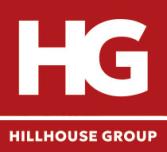Second Nevada acquisition for Aggregate Industries
AGGREGATE Industries have made their second major acquisition in Nevada with the purchase of Frehner Construction Co. Frehner are a major aggregates, asphalt and contracting business, headquartered in Las Vegas, with operations covering Nevada and Utah. This latest purchase follows the strategic acquisition of Southern Nevada Paving (SNP) in November 2003 and further develops the Group’s sixth region in the US.
Frehner, who had a turnover of $168 million (£97.3 million) in the year ended 31 December 2003, are being acquired for a net cash consideration of $95.8 million (£55.5 million).
Frehner own jointly, with SNP, a freehold interest in the 530-acre Sloan Mountain Quarry, close to Las Vegas, which has reserves of more than 650 million tons of high-quality limestone. Aggregate Industries say that with the quarry now under their full ownership, there is significant scope for the further development of this strategically important asset. Four independent ready-mixed concrete plants and two Aggregate Industries asphalt plants are already located at Sloan Mountain, and the quarry is well placed to increase sales in this fast-growing metropolitan area and to areas of eastern California.
Frehner also operate two quarries in Reno and Carson City, Nevada, with reserves totalling 30 million tons, as well as four permanent and four mobile asphalt plants in Nevada and Utah.
Peter Tom, group chief executive of Aggregate Industries plc, said: ‘This acquisition gives Aggregate Industries full ownership of the strategic mineral reserve at Sloan Mountain, creates significant synergies and strengthens our presence in this high-growth area; population in Nevada has grown by 12% since 2000, making it the fastest-growing state, and, at 4.4% year on year, Las Vegas has the highest employment growth in the US.
‘In its first full year this important new region is expected to produce 8 million tons of aggregate and 3 million tons of asphalt, and we will continue to expand the business through selective bolt-on acquisitions.’



